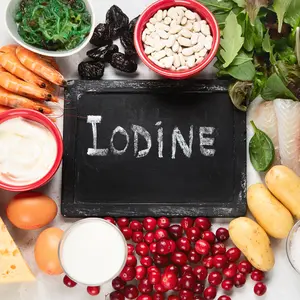

Food, Farming and Nutrition

Food, Farming and Nutrition
Foods to Avoid for Depression
Approximately 17.3 million adults in America are affected by depression. Research suggests an association between diet quality and mental health across multiple populations and age groups, which does not appear to be explained by other demographic or lifestyle factors. There is preliminary clinical evidence that dietary interventions can provide significant benefit for depression.
Here’s a look at some of the foods to avoid for depression.
Vegetable Oils
The higher levels of omega-6 fatty acids in common vegetable oils (canola, corn, safflower, and soy) have been associated with inflammation, depressive disorder, memory issues, and a decline in cognitive function. A 2007 study published in Psychosomatic Medicine found that diets high in omega-6 relative to omega-3 polyunsaturated fatty acid may lead to an increased risk for depression and inflammatory diseases, as the significant imbalance means the brain doesn’t obtain the fuel needed to function optimally.
Trans Fats
Trans fats are found in partially hydrogenated oils, which can be found in many processed foods such as store-bought baked goods, microwave popcorn, frozen pizza, fried foods, margarine, etc. Although they were banned by the FDA in 2015, trans fats less than 0.5 grams can be expressed as “0 grams.” Research has shown that trans fats can cause inflammation and have a negative effect on mental well-being.
Alcohol
In addition to dehydration, behavioral side effects, and damaging effects on the brain, alcohol can increase depressive symptoms and suicidal thoughts. A 2019 report in Alcohol Research noted that psychiatric disorders commonly co-occur with alcohol use disorder, with depressive disorders being the most common.
Meat Alternatives
A 2021 study of almost 50,000 participants noted that on average, vegetarians had a more depressed mood. It may be possible that mental health issues like anxiety and depression precede dietary changes; however, it is important to read the labels of meat alternatives, which can be highly processed and high in lectins and pro-inflammatory omega-6 fatty acids.
High-Glycemic Foods
Research has shown a link between depression and diets full of foods with a high glycemic index (e.g., sweetened drinks, processed meats and baked goods). A 2015 study that looked at data from nearly 70,000 women with no history of mental health issues or substance abuse found that those who ate a high-glycemic diet with high levels of refined carbohydrates had an increased risk of depression. After the study, researchers concluded that it was added sugars—not total sugars or total carbohydrates—that were strongly associated with depression onset.
Toxic Fish
Some types of fish can be high in mercury, which can contribute to neurological, immune, cardiac, reproductive, and genetic disorders. Heavy metal exposure has been linked to an array of health concerns, including depression, anxiety, Alzheimer’s, Parkinson’s, autism, and lupus. A general rule of thumb is the larger the fish, the higher the mercury content, so choose smaller types of fish. Seafood Watch and the FDA offer safe recommendations.
Artificial Sweeteners
A 2018 study found an association between aspartame and depression, anxiety, irritable moods, insomnia, and other neurophysiological issues. Aspartame, saccharine, and sucralose also can lead to high insulin levels, which are associated with an increased risk for depression.
Gluten
Studies show that for those with gluten sensitivities, including celiac disease, eliminating gluten from the diet can provide mental health benefits. Gluten sensitivities have been linked with depression, mood disorders, anxiety disorders, ADHD, and other issues. A 2018 research review of 13 studies on gluten and mood symptoms found that the adoption of a gluten free diet significantly improved depressive symptoms and may be a helpful strategy for treating mood disorders in those with gluten sensitivities.
Pesticide-Laden Produce
Pesticides have been linked a range of health concerns including cancer, hormone disruption, and cognitive and behavioral problems. A review published in the International Journal of Hygiene and Environmental Health found that multiple studies noted increased suicide rates in areas with intensive pesticide use, and working in agriculture creates a higher suicide risk compared with other occupations. To help minimize pesticide exposure, choose organic produce when possible and make sure to wash produce thoroughly before eating.
REFERENCES
Amen Clinics. (2022, February 8.). 9 worst foods for depression. https://www.amenclinics.com/blog/9-worst-foods-for-depression
Marx, W., Moseley, G., et. al. (2017, November). Nutritional psychiatry: the present state of the evidence. National Institutes of Health. National Library of Medicine. National Center for Biotechnology Information. https://pubmed.ncbi.nlm.nih.gov/28942748/


 By
By





